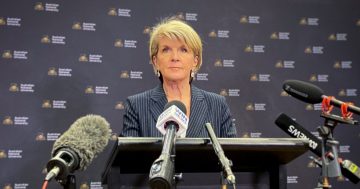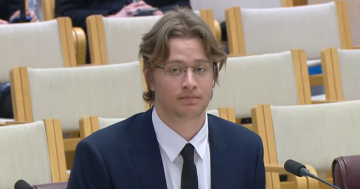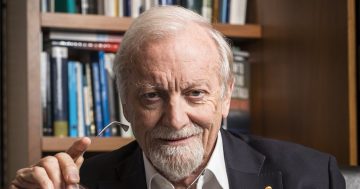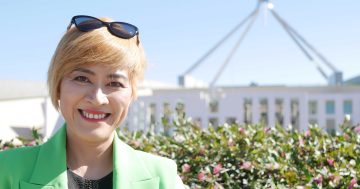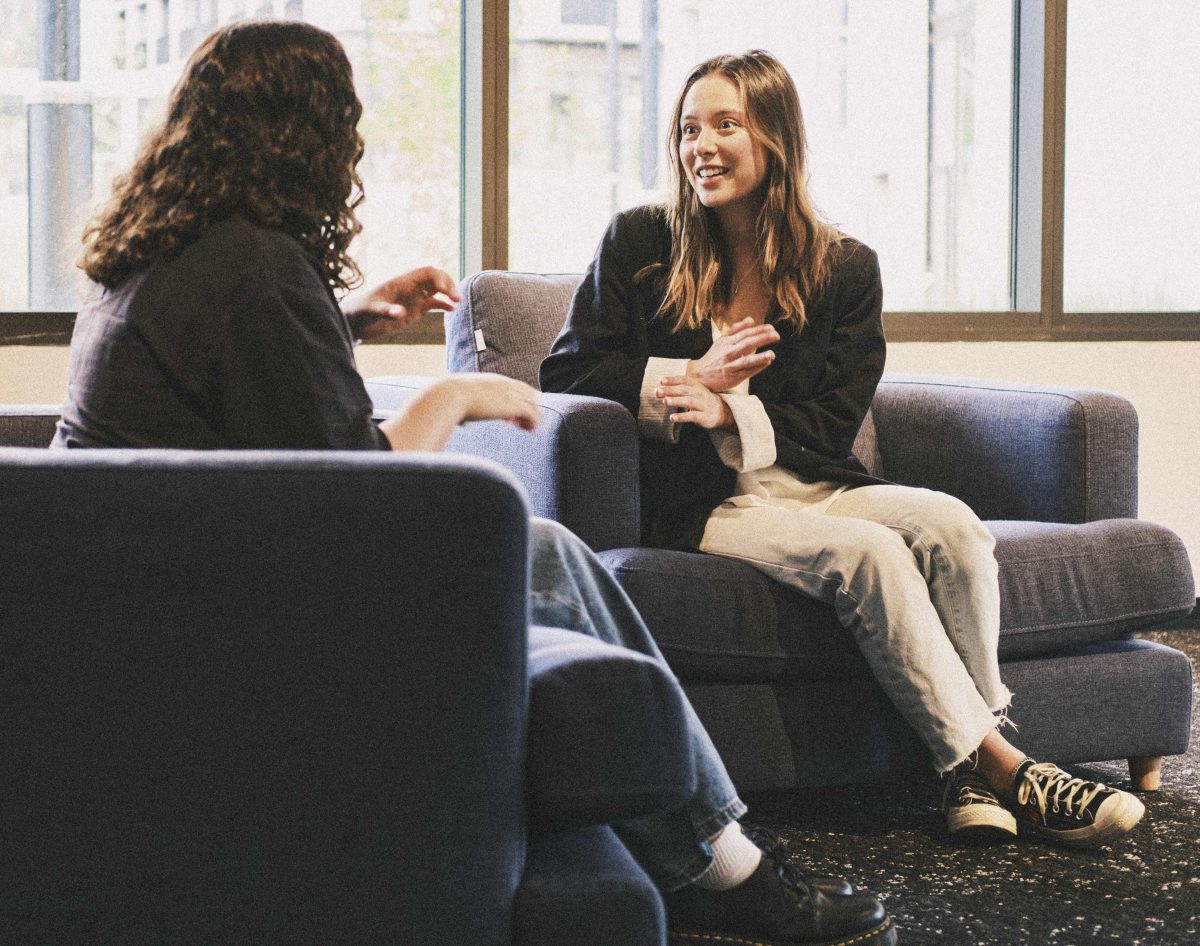
Charlotte Young from the Australian National University, right, speaks to another ANU student in the Auslan club. Photo: Oskah Dunnin.
Charlotte Young was diagnosed with a hearing challenge at age four which, in her words, “was incredibly late”. Usually, people are diagnosed at four months, but thanks to the advocacy of her mother, who knew something was not right, the diagnosis eventually came.
Today, the Australian National University student is passionate about working with other people who face a hearing challenge and co-founded the ANU’s Auslan Club, of which she is also president.
Charlotte uses her experience as a person with hearing loss to drive change and has worked as a consultant to national and international organisations, including the Australian Government, Children and Young People with Disability Australia, UNICEF and the United States Embassy.
She is also a fellow with the Clinton Global Initiative University, advocating for young people with disability in the justice system.
In between, she’s a full-time student at the ANU – and a dancer.
Charlotte says although there are still parts she “still struggles with”, like tinnitus and listening fatigue – when lecturers speak for a long time – and “living in a world that isn’t as accessible as it could be”, she reckons there have been more advantages than disadvantages.
“I’m very lucky to have grown up in incredibly supportive communities and accessible environments which fostered my ability to self-advocate. I was never bullied,” she said.
“I am incredibly grateful to have found collectives of other allies and disabled people through speeches, leadership programs and advocacy bodies.
“My successes are shared and are the successes of a whole group of people, not just me.”
Charlotte’s successes are many, but few are as important as the Auslan Club she helped set up at the ANU. Not only does it provide a dedicated space on campus to share deaf language and culture, but it also now provides sign language lessons to the ACT community. Since its inception, it has increased the number of Auslan signers in the ACT by 5 per cent.
Charlotte said she was approached by her French teacher, Dr Gemma King, who was working on a project about sign language in film.
“She asked whether I was interested in helping create something, and I said, ‘Of course’.
“I have a hearing loss myself but had never been able to communicate with other members of my community who were fully deaf without an interpreter, and that felt quite uncomfortable.”
She said as a high school student, she didn’t have the time to pursue Auslan and that its certificates were “a bit too daunting and too expensive”, so when she was asked to start it at the ANU, the timing was perfect.
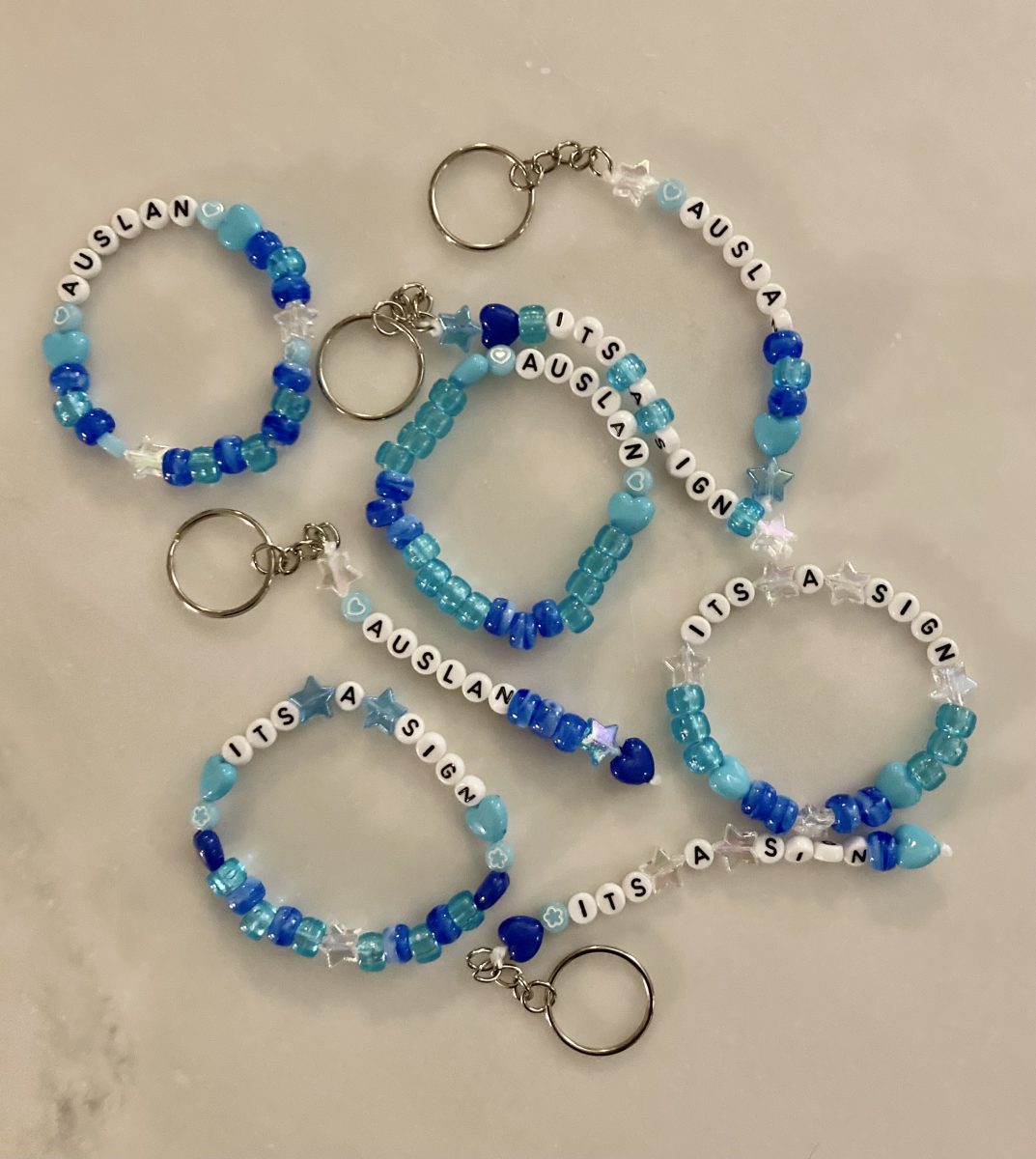
Specially made friendship bracelets and keyrings are available through the ANU’s Auslan Club as a fund-raiser. Photo: Supplied.
The ANU’s Auslan Club offers subsidised sign language classes online or on campus, and includes education on deaf culture.
“It’s a really accessible way to bring some friends who were curious with you, or in my case, my partner, and learn in a space specially designed for people who have no prior understanding of Auslan.
“The act of learning in itself felt empowering because I was putting in an active effort to bridge the gap of communication between myself and Auslan speakers in Australia, and it almost felt like I was finally stepping into a community I could join with open arms as they experienced a lot of the same struggles that I did.
“To me, I was empowered even when my Auslan wasn’t perfect because I was trying to learn, and I feel that’s what people appreciate the most.”
Want to learn more about Auslan? Courses are available through CIT.
The ACT Deafness Resource Centre (DRC) offers information, referrals, resources and advocacy to the deaf and hearing-impaired communities in the ACT and surrounding regions of NSW.
Original Article published by Sally Hopman on Riotact.


